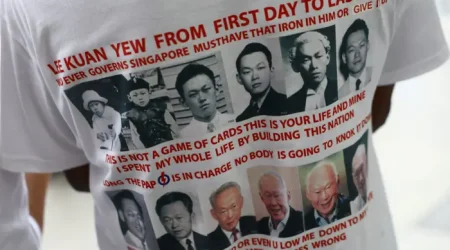Asia stocks stall on China housing plan, ‘Trump trade’ lifts dollar
SINGAPORE: Asian shares were pinned to three-week lows on Thursday, as a housing policy briefing in China underwhelmed investors and property stocks slumped, while the euro touched an 11-week low ahead of an expected rate cut by the European Central Bank.
Profit at chipmaking giant TSMC beat market expectations, and it expects revenue to rise sharply in the fourth quarter.
The European Central Bank is expected to make its first back-to-back rate cut in 13 years and cut again in December, so the tone and guidance in the press conference at 1245 GMT will be closely watched. European stock futures edged higher in Asia.
Japan’s Nikkei slipped 0.7% and China’s broad indexes lacked direction after early gains reversed. The Shanghai Composite rose 0.1% and is now trading more than 10% below last week’s 33-month high.
CSI300 real estate stocks fell 7%, reversing two days of gains. Hong Kong’s Hang Seng was last up 0.5% but sitting 12% below its most recent peak, as investors move aside to wait for more Chinese government spending and signs it is helping the economy.
China’s housing minister promised to improve builders’ access to funding for finishing thousands of projects.
But there was no new gesture to excite markets about a meaningful revival for a sector where a crackdown on developers’ borrowing has set off a wave of defaults, while declining prices have shaken households’ faith in the asset class.
“The briefing is mainly about implementing previously-announced policies, including some already in operation,” said Shi Jiangwei, analyst at Shanghai Minority Asset Management, disappointing investors expecting fresh stimulus.
Property developer Sunac China taking the recent rally as a cue to raise capital, hardly helped the mood.
Australian shares also eased from a record high as mining stocks slipped and iron ore prices fell in Singapore. U.S. equities futures wobbled lower after the main indexes closed at or near record levels on Wednesday.
DOLLAR GAINS
Bonds have been supported since data showed an unexpectedly large slowdown in British inflation on Wednesday, helping gold – which pays no yield – rise to within a whisker of a record high, while sending sterling sliding below $1.30.
Gold last traded at $2,680 an ounce and sterling at $1.2985, near Wednesday’s two-month low. Benchmark 10-year U.S. yields were steady at 4.03% in Asia and two-year yields held at 3.95%.
Broader foreign exchange markets, meanwhile, have sent the dollar higher tracking an improvement in Republican Donald Trump’s fortunes in prediction markets for the U.S. presidential race.
Trump’s tariff, tax and immigration policies are seen as inflationary, and thus negative for bonds and positive for the dollar. The yen traded at 149.54 per dollar.
“It’s probably only in the last two or three days that the concept of a Trump victory is getting the U.S. dollar bid,” said Damien McColough, head of rates strategy at Westpac.
“There’s also the concept of a strong economy and less Fed rate cuts, so the two merge,” he said. Trump and the Republicans are seen as likely to apply a softer touch to cryptocurrency regulation. Bitcoin has rallied in recent sessions and is up about 15% in a week to $67,400.
The Australian dollar bounced from a one-month low in Asia after data showed net employment blowing past forecasts and pushing out rate cut bets.
In commodity trade, Brent crude futures steadied at $74.57 a barrel after four sessions of losses. Industry data showed an unexpected drop in U.S. crude stockpiles last week.
U.S. retail sales data is due later on Thursday. – Reuters













Leave a Reply